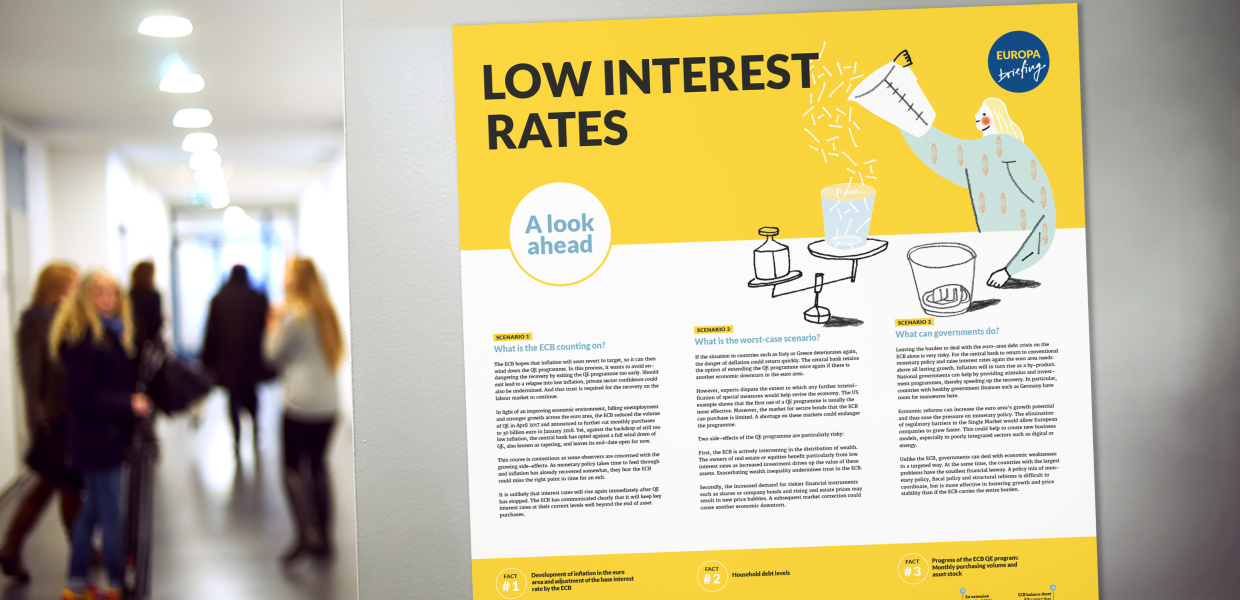In our first "Europa Briefing", we explain when low interest rates become problematic and what the European Central Bank (ECB) is doing to increase inflation. We also look ahead and look at what can happen if inflation continues to remain as low as before. We also explain what governments in the euro area must now do to resolve the conflicts surrounding low-interest policy.
In the publication series “Europa Briefing”, the Bertelsmann Stiftung and the Jacques Delors Institut – Berlin cover key topics of European politics and present possible scenarios: What is the problem? What might happen next? And what can politics do now?

